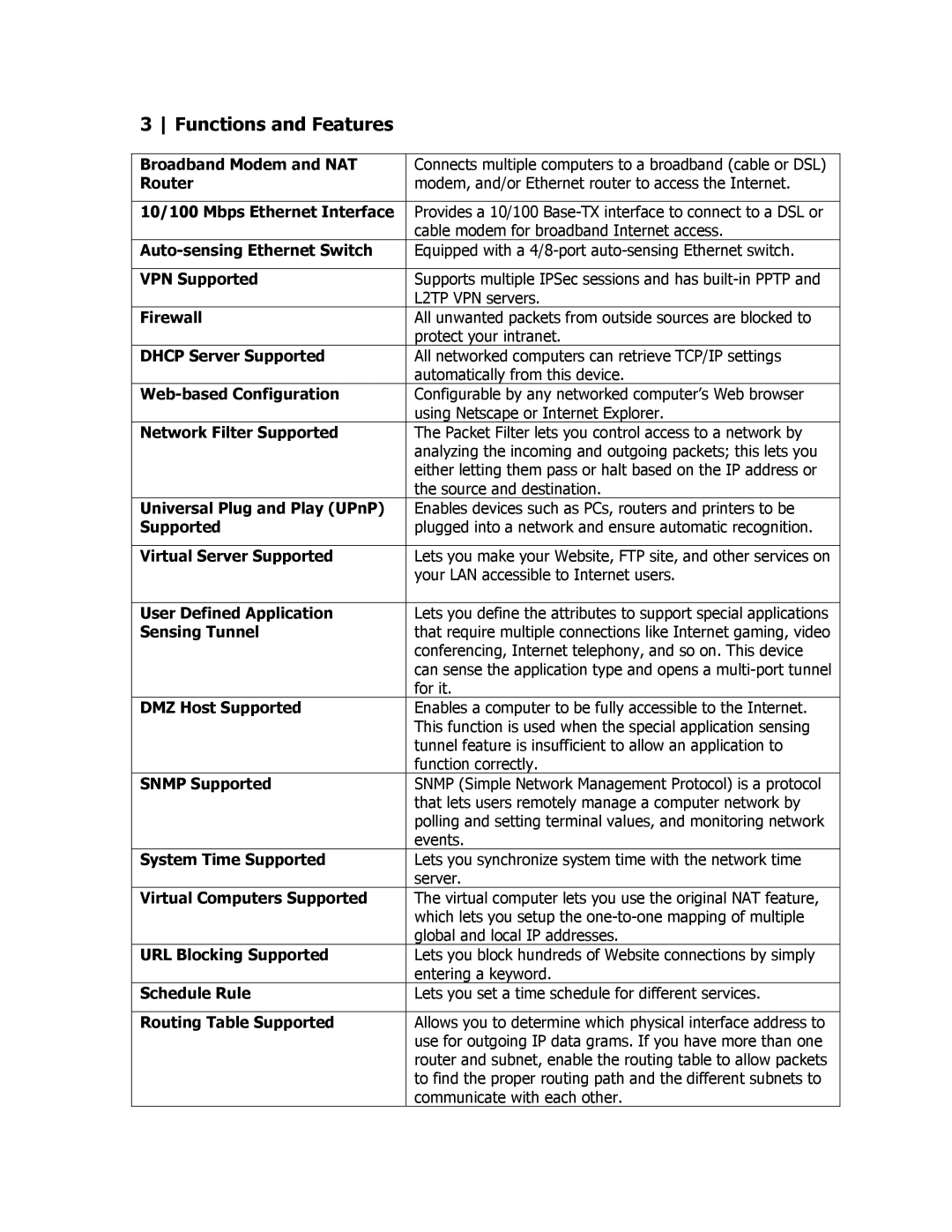3 Functions and Features
Broadband Modem and NAT | Connects multiple computers to a broadband (cable or DSL) |
Router | modem, and/or Ethernet router to access the Internet. |
|
|
10/100 Mbps Ethernet Interface | Provides a 10/100 |
| cable modem for broadband Internet access. |
Equipped with a | |
|
|
VPN Supported | Supports multiple IPSec sessions and has |
| L2TP VPN servers. |
Firewall | All unwanted packets from outside sources are blocked to |
| protect your intranet. |
DHCP Server Supported | All networked computers can retrieve TCP/IP settings |
| automatically from this device. |
Configurable by any networked computer’s Web browser | |
| using Netscape or Internet Explorer. |
Network Filter Supported | The Packet Filter lets you control access to a network by |
| analyzing the incoming and outgoing packets; this lets you |
| either letting them pass or halt based on the IP address or |
| the source and destination. |
Universal Plug and Play (UPnP) | Enables devices such as PCs, routers and printers to be |
Supported | plugged into a network and ensure automatic recognition. |
|
|
Virtual Server Supported | Lets you make your Website, FTP site, and other services on |
| your LAN accessible to Internet users. |
|
|
User Defined Application | Lets you define the attributes to support special applications |
Sensing Tunnel | that require multiple connections like Internet gaming, video |
| conferencing, Internet telephony, and so on. This device |
| can sense the application type and opens a |
| for it. |
DMZ Host Supported | Enables a computer to be fully accessible to the Internet. |
| This function is used when the special application sensing |
| tunnel feature is insufficient to allow an application to |
| function correctly. |
SNMP Supported | SNMP (Simple Network Management Protocol) is a protocol |
| that lets users remotely manage a computer network by |
| polling and setting terminal values, and monitoring network |
| events. |
System Time Supported | Lets you synchronize system time with the network time |
| server. |
Virtual Computers Supported | The virtual computer lets you use the original NAT feature, |
| which lets you setup the |
| global and local IP addresses. |
URL Blocking Supported | Lets you block hundreds of Website connections by simply |
| entering a keyword. |
Schedule Rule | Lets you set a time schedule for different services. |
|
|
Routing Table Supported | Allows you to determine which physical interface address to |
| use for outgoing IP data grams. If you have more than one |
| router and subnet, enable the routing table to allow packets |
| to find the proper routing path and the different subnets to |
| communicate with each other. |
